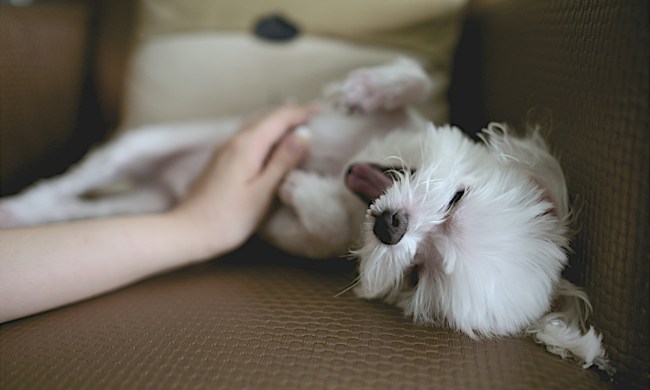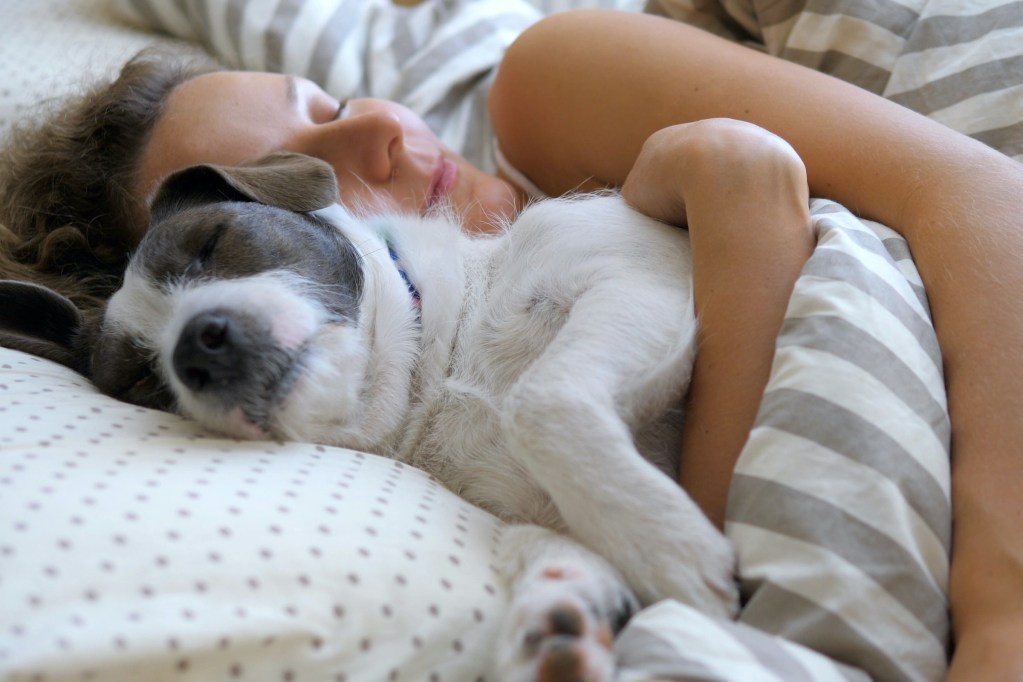
When you think about your dog sleeping in your bed, how do you imagine it? Many pet parents can picture their beloved pet sprawled out across the entire bed while they themselves toss and turn for most of the night, but is that truly the reality of co-sleeping with a fur baby?
It can be hard to predict — every pet has their own personality and sleeping habits — but what scientists and behaviorists have found so far may surprise you. Not only do dogs provide comfort and warmth for their sleepy owners, but they tend not to disrupt sleep, either (most of the time, anyway). It may seem too good to be true, but these are the reasons why you totally should let your pet sleep in your bed every single night … or at least try it out. Trust us, they’ll love it, too!
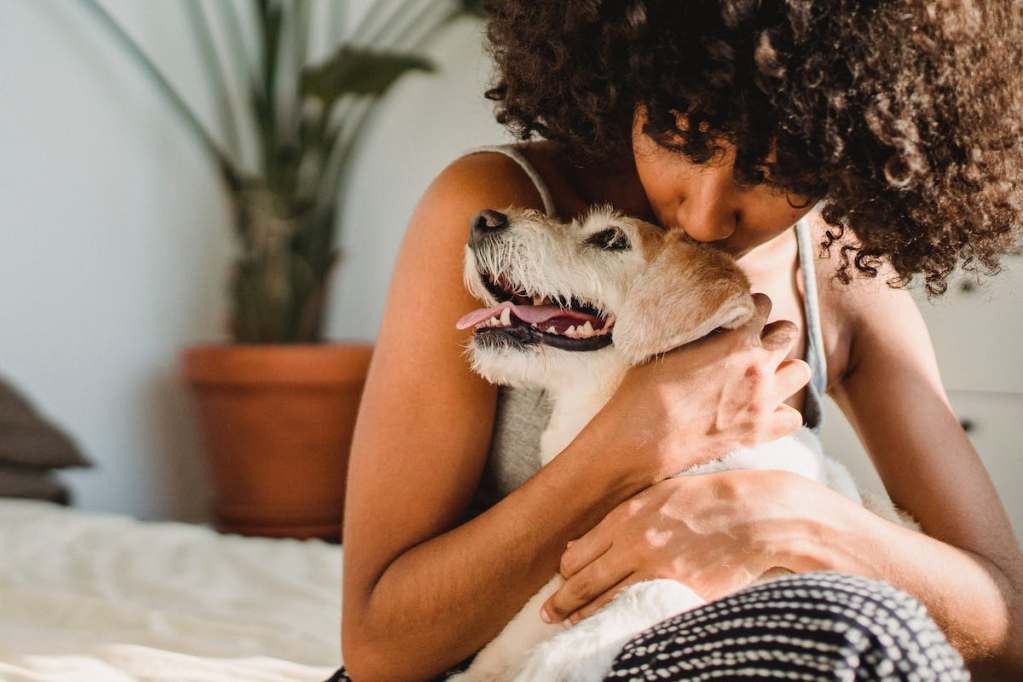
It can be comforting to have a dog sleeping in your bed
Just think about all the ways your pup lights up your waking hours with their goofy antics and endless love. Why not bring that sweetness into your nighttime routine, too? Spending time with your fur baby can be a comforting and rewarding way to end your evening on a happy (and adorable) note, though researchers found that people suffering from anxiety and depression may find even more benefits.
As Dr. Raj Dasgupta, an assistant professor at the University of Southern California’s Keck School of Medicine, explained to CNN, “People with depression or anxiety may benefit from having their pet in the bed because the pet is a big pillow, a big blanket, and they may feel that snuggly, cuddly, furry creature decreases their anxiety.” Big fluffy blanket? Yes, please! If you’ve ever felt comfort from a weighted blanket, being tucked into bed, or even a simple hug, you can probably relate. Either way, there’s no way to deny it — dogs are comforting!
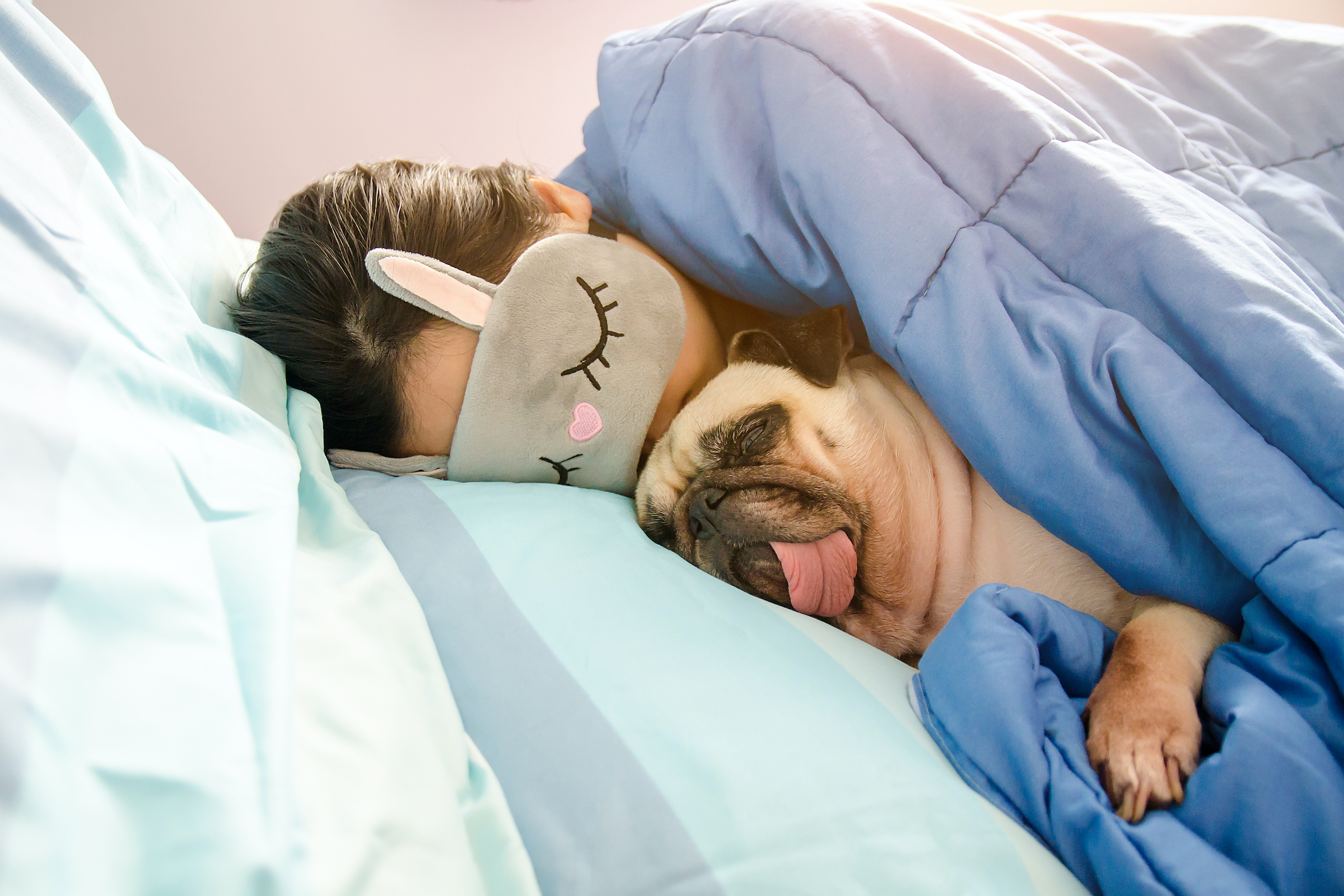
Sleeping in your bed keeps your pet comfy, too
Though many pups love having their own comfy crate or dog bed, these pet beds still don’t compare to the softness and roominess of your mattress. There’s nothing like stretching out on a nice plush blanket after a long day, after all. We get it!
Letting your dog sleep in your bed might help your furry friend keep up with their demanding sleep schedule, too. Having multiple pups on the bed, however, has a chance of doing the exact opposite — just imagine how tight for space it could be — so you may want to think through your options in a multi-pet household. Remember, you need room to snooze, too!
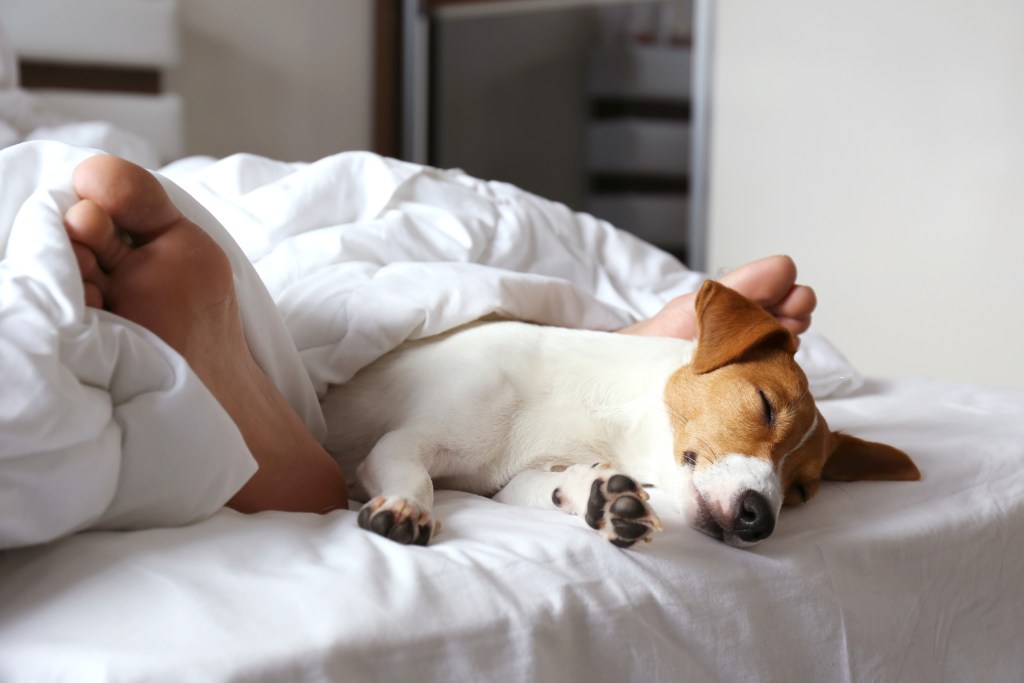
Co-sleeping with your pet strengthens trust and bonds
CNN spoke with Dr. Dana Varble, the Chief Veterinary Officer of the North American Veterinary Community, about the benefits of dogs sleeping in bed with their owners. She noted that canines who co-sleep with their humans tend to have a “higher trust level and a tighter bond with the humans that are in their lives.”
An increased sense of trust between you and your pup has benefits for both of you! It will make communication and training much easier while helping both of you feel confident and secure in your relationship.

That increased bond can have health benefits for your pet
In addition to priceless emotional rewards, bonding with your pup can help them stay healthy. Dr. Varble lists “increases in beneficial neurotransmitters such as oxytocin and dopamine, the feel-good hormones” as one of the most important takeaways of co-sleeping. On top of all that, says Therapy Dogs of Vermont (TDV), dogs also experience stress reduction, lower blood pressure, and even a lower heart rate when spending time with their people.
Of course, these benefits go both ways. TDV notes that people may also experience those same positive health responses when bonding with their dog — even when sleeping!

You’ll have the safest sleep of your life
Whether your dog is a natural guard dog or more of a couch potato, their instinct is to keep an eye on their pack. That’s why your buddy follows you everywhere you go (even to the bathroom) and why they may prefer to be in your bed instead of in their own. And while you’re snoozing, you can rest assured that your furry friend will be the first to wake up if anything unusual should go bump in the night. Remember, even deaf dogs can feel vibrations!
Having your dog by your side all night long can be extra comforting if safety is a concern, but even when you know you’re safe and sound at home, the presence of a cuddle buddy can put almost any worry to rest.
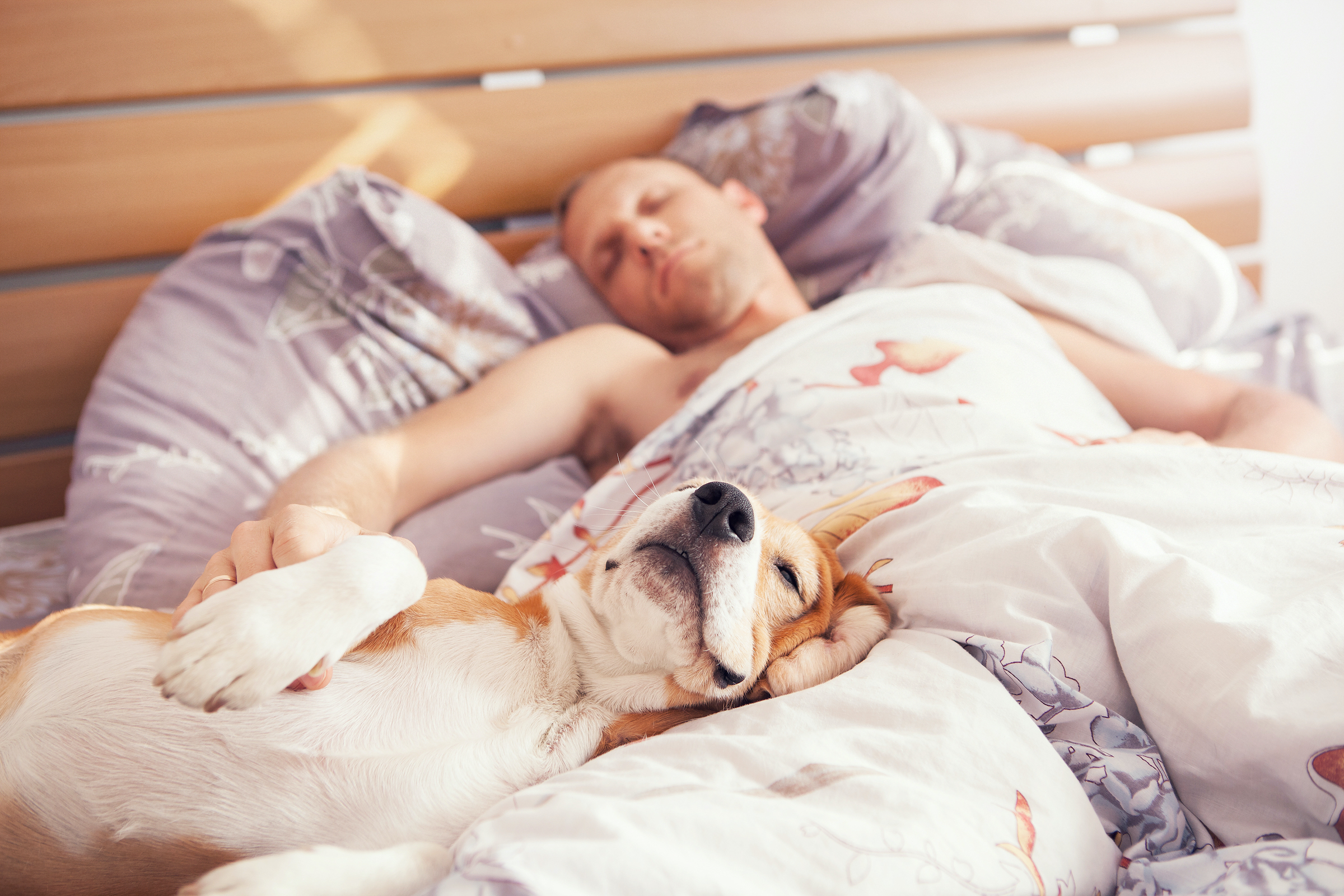
Studies show that most pets don’t disrupt sleep
Despite the chaotic ways pets sleep — spread out over as much space as possible or snoring just loudly enough to keep you from drifting off — research studies have shown that sleeping with a pet doesn’t necessarily mean you’ll miss out on a good night’s rest.
As found by a 2014 study conducted by the Mayo Clinic, only 20% of owners who let their pets sleep in the same room found their pets “disruptive” while sleeping. On the other hand, 41% of participants considered their pets to be “unobtrusive or even beneficial to sleep.” Though this particular study was small and needs further testing to confirm its findings, it seems to imply that co-sleeping with your dog isn’t as bad for your sleep as you may think.
Even children are fine with a dog in the room, according to another, more recent sleep study. These researchers found that the children who co-slept with pets had the “highest overall subjective sleep quality” of participants overall.
Rethinking your sleeping situation yet? We don’t blame you! Now that you know all of the reasons why co-sleeping with your pup can actually be good for you both, you can make the best, most informed decision for your home. Not all dogs will be the best bed companions, but you also may have just found yourself the best roommate. In the end, it’s all about what works for you.

